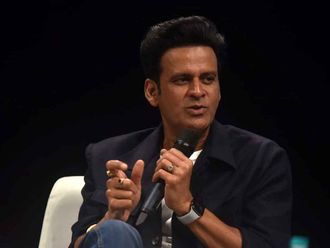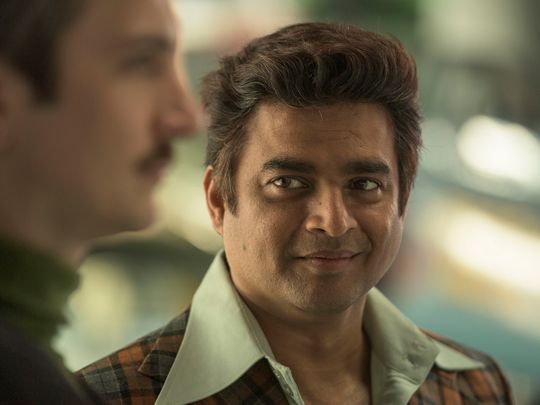
There’s a powerful scene in the searing biopic ‘Rocketry: The Nambi Effect’ where its subject — a brilliant Indian rocket scientist who is celebrated and then vilified as a spy — rejects an apology from all those who tore his dignity to shreds.
Redemption is not for sale, declared a silver-haired R Madhavan, without a hint of malice. The scene often juxtaposes his face with the real-life scientific genius for greater effect.
R Madhavan as Dr Nambi Narayanan wasn’t being petty or cruel, but the idea of giving closure to those who slung mud on him wasn’t high on his list of priorities.
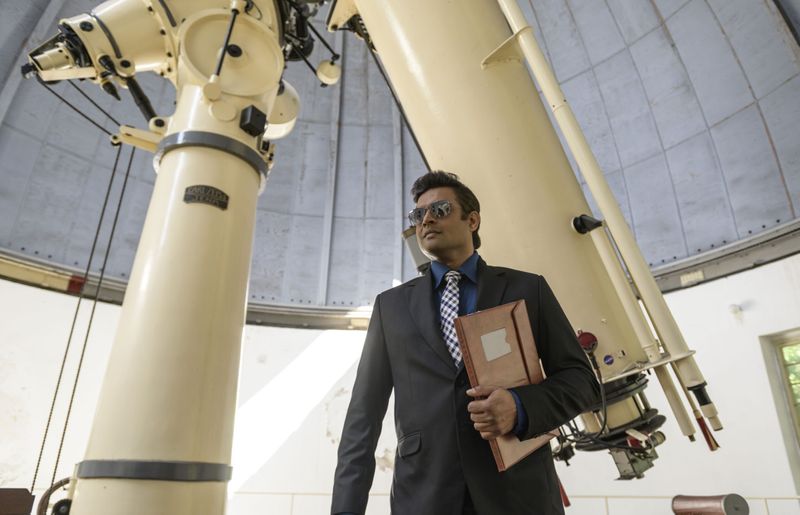
Now, had this been a typical Bollywood hagiographic biopic, this scene would have played out differently, where the titular hero Nambi Narayanan had a more gentrified response with a tear or two rolling down and a hug thrown in.
And remember, the apology was being rendered by a smooth-operator like Bollywood superstar Shah Rukh Khan. Aptly cast as a show host — who’s suave and sensitive to his interviewee — Khan is utterly convincing in this significant role. But even Khan’s character cannot charm Narayanan because of the gravity of the crime thrust on the scientist is shockingly vile.
Narayanan’s rejection of an apology from a global icon like Khan reminded us that this is not the usual glossy, eulogised Bollywood biopics that we are accustomed to.
But be warned, this is no flawless film. Madhavan’s debut directorial is rough around the edges, especially in the first half where we are introduced to a sprightly Narayanan in his late-20s before he joins India’s hallowed Indian Space Research Organisation (ISRO). He’s the brightest bulb in any classroom and doesn’t think twice about challenging his professor at Princeton.
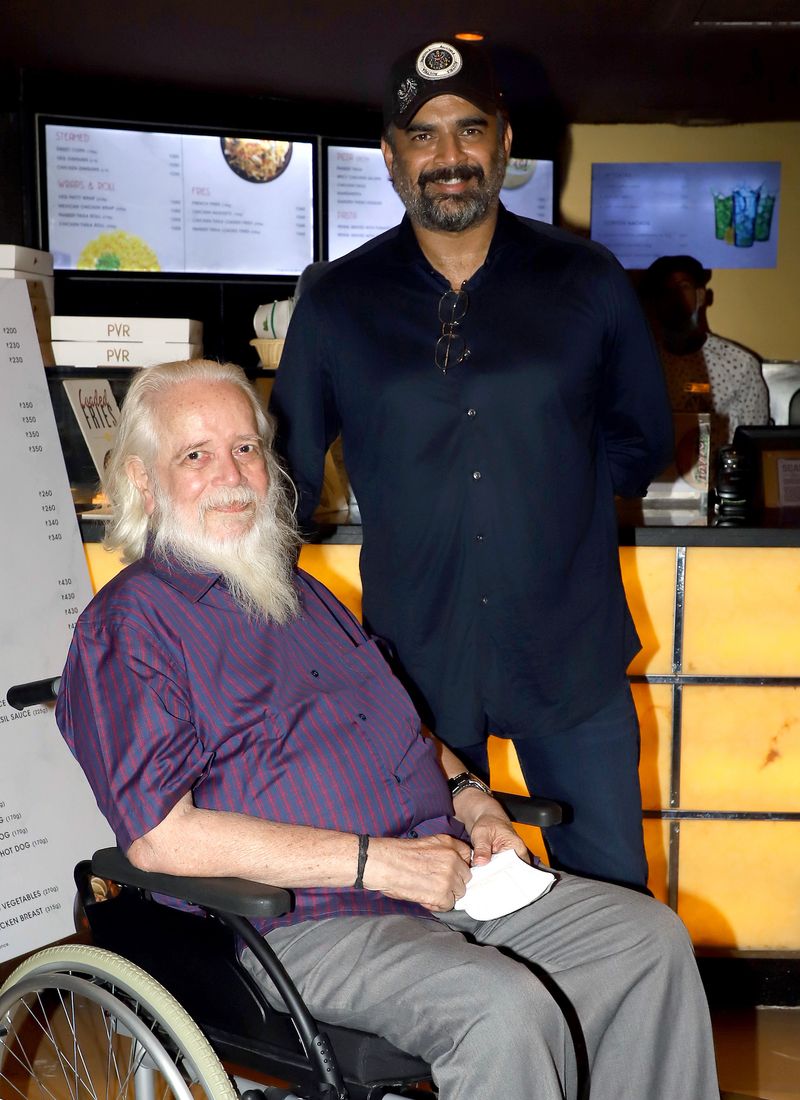
The nerdy Narayanan rejects a lush offer from American’s revered NASA to return to India to serve the nation’s space dreams. But at no point does director and writer Madhavan, who also plays the hero, stick to the usual tropes attached to biopics. He doesn’t airbrush his subject or elevate him to a venerated class.
When it comes to his work, it’s established clearly that Narayanan is cold and calculating and that he will go to any lengths to make sure his scientific goals aren’t interrupted.
A powerful scene in the first hour, which meanders along setting up the stage for his ignominious fall from grace, is when Narayanan makes an inhumane decision as a boss. A personal tragedy strikes his peer, but Narayanan decides to withhold that information from his wide-eyed colleague to protect his mission that’s already tottering due to limited resources from ISRO.
His narcissistic and toxic traits aren’t dialled down and that’s oddly heartening. How many biopics in India would dare to show a warts-and-mole account of a sharp mind? The biopic doesn’t also shy away from sinking deep into the know-how behind rocket science. You may not full understand it, but you find yourself invested.
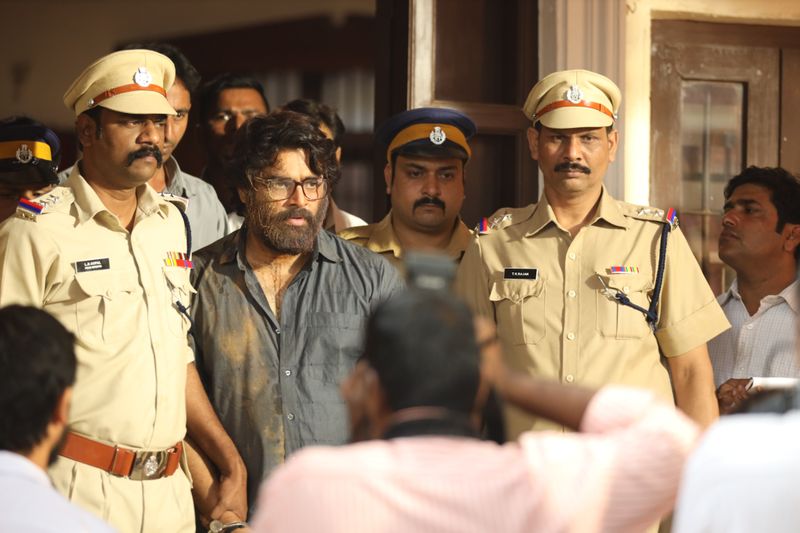
The first hour meanders along establishing the persona and the man behind Narayanan and feels contrived and unthreatening, but it’s the powerful second half that makes this bumpy ride of a film truly worthwhile.
This film shifts into gear truly when an unsuspecting Narayanan is abruptly arrested in 1994 and branded a traitor who sold secrets to a rival nation. Instantly, his entire family — a bunch of simple-minded middle-class folks — is criminalised and targeted. And what hits hard is knowing this a true life story and such violent and gross injustices isn’t some pulpy fiction. Sometimes, truth is more gruesome than fiction — you start to believe.
The film also tenuously shows how rocket scientists are socially awkward.
A line of how he was alienated and his fellow scientists didn’t stand with him during his dark days in his life is wonderfully encapsulated when Madhavan says quietly that a scientist will know what to do when an engine fails, but won’t know what to do when a man falls. The widespread apathy to his case is felt deeply.
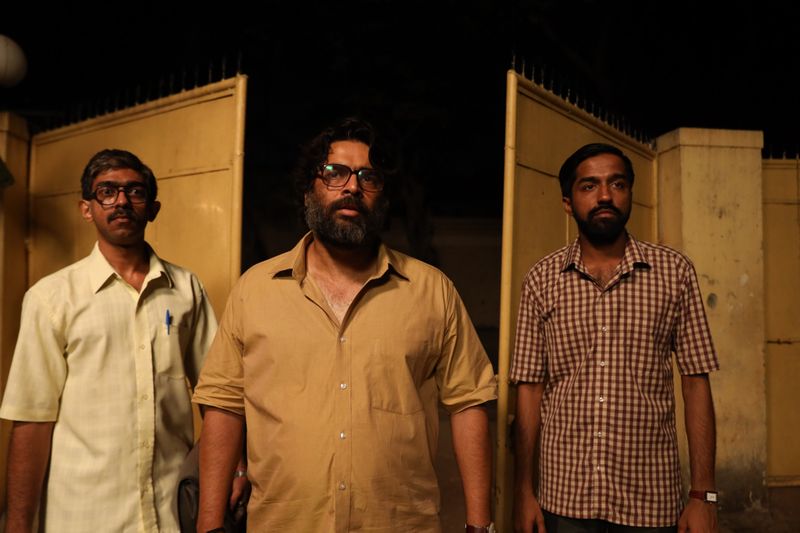
Madhavan shoulders the film with impressive authority. The varying ages and phases of Narayanan’s chequered life is brought to life with great authenticity. The parts in which he’s brutally arrested and tortured by the Kerala police is heart-wrenching. At one point, Madhavan’s character had to quietly remind his violent interrogators that he’s a learned rocket scientist and not some petty criminal who can be denied his basic human rights when in custody.
You shift in your seats uncomfortably and that’s precisely what Madhavan seems to want. He doesn’t want to let the audiences off their hook easily and we have to give him credit for being fearless on that front.
The movie explores the portrait of a self-respecting family being witch-hunted and their personal trauma without much melodrama. Actress Simran as Madhavan’s wife who is psychologically destroyed after her husband is brandished as a spy after he was allegedly honey-trapped by two Maldivian women is in brilliant form.
Their intimate moments where they are vulnerable with each other is deeply evocative. But the best part about this biopic is that their fierce quest to reclaim their honour is relayed without much pomp, fanfare, or frills.
It took Narayanan more than a decade to clear his name and that road was paved with pain and betrayal, but he didn’t relent as he soldiered on. And he hasn’t forgotten or forgiven, but the biopic makes you tip your hat to the real-life patriot. They come in all forms and sizes, and Madhavan proves that sky’s the limit when it comes to making a touching biopic.
The film begins on a whimper, but ends with a big bang.





